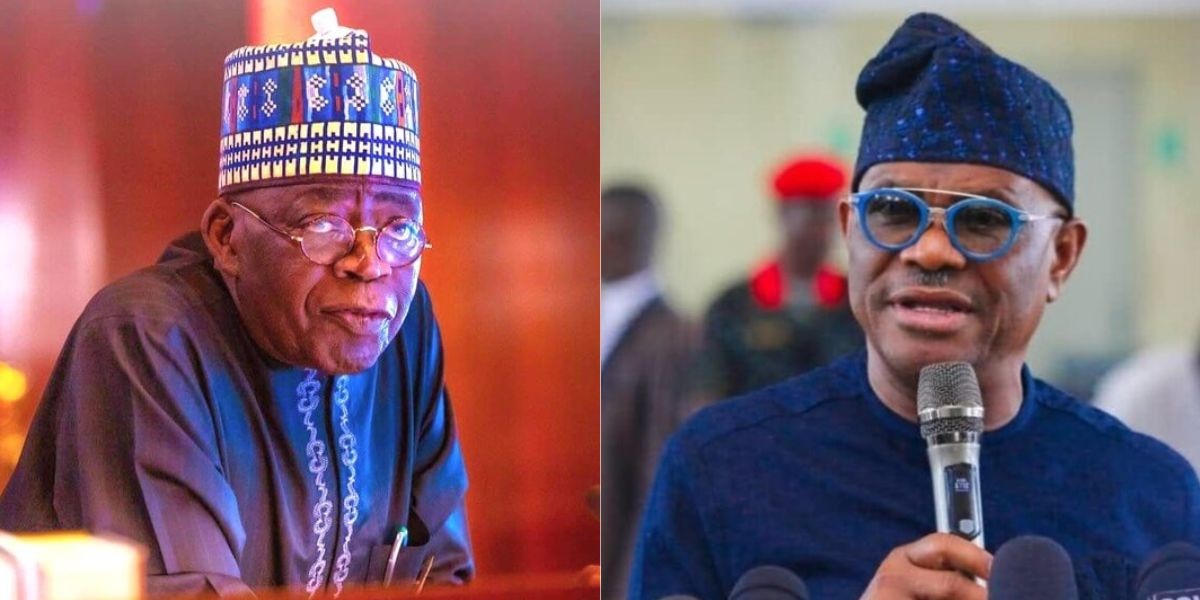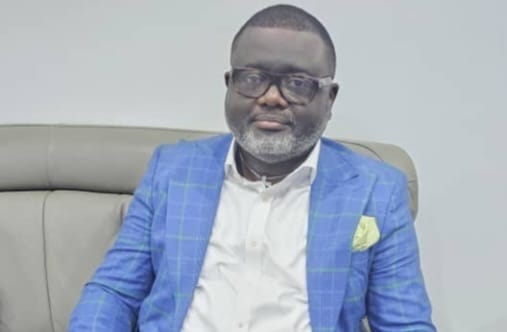Opinion
Botched 5G services and the Wi-Fi 6 gamble

By Sonny Aragba-Akpore
When fully implemented,Fifth Generation (5G) technology and services will transform the telecommunications landscape in Nigeria like nothing else before it,Isa Pantami,the immediate past Communications and Digital Economy Minister boasted on the eve of the 5G auction three years ago.He spoke with certainty and confidence.
And like in a relay race,the Chief Executive of the Nigerian Communications Commission (NCC),Umar Garba Danbatta took the baton and began the spirited advocacy building frenzied hypes around the auction.
Pantami had allegedly misled President Mohammadu Buhari, the Federal Executive Council (FEC) and everyone else in the country to believe that 5G will provide life abundance with unbelievable internet speed like lightening.
The first auction saw MTN and Mafab Communications limited (a Special Purpose Vehicle) winning two available lots at a bid price of $273.6m each.
A little over a year later,Airtel Africa got a third lot thus completing the experimental triumvirate.
But that is where the story of 5G ends so much that even the people at NCC cannot in all sincerity beat their chests to say 5G exists and will gladly list it as part of their achievements.
If it exists at all,it is better imagined because nothing is being said about it either on earth or elsewhere.
5G networks are not visible.Perhaps it is available and in use by an insignificant fraction of the population.
Even the licence beneficiaries speak about it in subdued tones and perhaps see the investment like it’s often said in local parlance as “bad market “.
Elsewhere in Africa,some countries are in the race and even though they are yet to fully achieve meaningful milestones,there are strong indications that they are coasting home to victory in this race.Not yet in Nigeria.
The India example is exemplary.Perhaps,many countries should visit India and ask them how they were able to achieve the milestones especially in a country of over 1.428 billion population.
The Indian regulator created a workable template introducing a business model that allows beneficiaries of the bid to stagger license fees payments over a period of 10 years to enable them deploy services sensing that equipment and infrastructure for 5G is not a walk in the park.
And the operators appreciate that move.
But in Nigeria,the people who midwifed 5G did it to raise money for government and allegedly made some consultants smile to the bank after collecting their well appointed commissions.
And now neither the license beneficiaries nor the people they are supposed to serve have anything to show for all the troubles.
But while consumers are in a dilemma waiting for when the services will ever come,the NCC on September 19,2024 announced in Lagos another experiment if not a gamble.
It is introducing Wireless Fidelity (Wi-Fi 6) which they claim will bridge the digital divide whereby the speed of internet will be “amazing.”
Globally,Wi-Fi 6 is not new.It has taken root in parts of the world including the United States,(USA),South Korea,Canada,U.K and many others.
The International Telecommunications Union (ITU) created workable templates for it some of which the Federal Communications Commission (FCC) of the USA had adopted with a home grown modification.
So if Nigeria adopts it,the question is how prepared is the regulator in Abuja to manage it for the benefit of consumers.?Will it be another hype like we saw in 5G?
Speeches and more speeches were made on September 19,2024 in Lagos on the subject with a number of participants having their reservations if not misgivings.
When the NCC conducted the 5G
auction of two lots of 100 MHz slots of 3.5 GHz band for the deployment of 5G networks in
Nigeria it was done with funfare likened to bazaar of sorts.
Three companies participated in the auction process and the bidding commenced at $199.37m, as against the reserve price of $197.4m (75 billion naira) set by the NCC
After 11 rounds of bidding, the auction ended at $273.6m for each available lot with MTN Nigeria Communications Plc (MTN) and Mafab Communications Limited (Mafab) emerging as preferred bidders.
And the preferred bidders were
expected to pay the winning bid price, less the Intention-to-Bid Deposit, no later than February 24,2022.
MTN was to pay an additional sum of $15.9m to be assigned the preferred Lot One (3500-3600
MHz), while Mafab was assigned Lot Two (3700-3800 MHz), at no extra cost.
In addition, Mafab was required to acquire a Unified Access Service License, which is the operational license for the frequency spectrum at an additional fee of N374.6m (approximately $905,000 then).
The Information Memorandum (IM) provided for a validity period of 10 years for the awarded
spectrum and further requires licensees to roll out service in at least one state in each geo-political zone within the first two years from the effective date of the license. Further roll out was expected in six additional states in the 3rd and 5th years.
The technology is expected to have been fully deployed nationwide between the 6th and 10th year of the award of the license. Roll out in each state was expected to be a minimum of five sites per state.
The Federal Government earned $820.8 million from the auctioning of the 5G licence processes.
Pantami who said it was a game changer told President Muhammadu Buhari administration then that 5G will make a world of difference.
According to Pantami , in addition to the revenue generated from the 5G spectrum, revenue is being generated from other spectrum fees. “For example, in 2020, N26,428,642,451.61 was generated as spectrum fees.”
“MTN, Mafab and Airtel all have participated in the auction process and each obtained a lot of 100 MHz from the 3.5GHz spectrum after successfully participating in the auction process.The story has not gone beyond that.
Now another experiment,the Wi fi 6 which ITU says could be accessed on the 5925–7125 Megahertz (MHZ) band, and is designed to deliver optimized performance for next-generation use cases.
As with any wireless technology, Wi‑Fi depends on access to radio frequency spectrum. But a lack of spectrum threatens future Wi‑Fi performance and functionality.
“ Policymakers, recognizing this, are expanding Wi‑Fi spectrum access with a focus on the 5925–7125 megahertz (MHz), or 6 gigahertz (GHz), frequency band. Opening this band to Wi‑Fi will enable a wide range of new use cases,”ITU submits.
These — combined with expanded broadband access via fibre or satellite — promise to deliver versatile and extremely affordable connectivity. This makes Wi‑Fi an ideal force multiplier for connectivity.
ITU explains that the case for allowing Wi‑Fi services in the 5925–7125 MHz band is clear and compelling, with 6 GHz Wi‑Fi already delivering real socio-economic benefits in many countries.
“The diverse and growing product ecosystem for 6 GHz Wi‑Fi fits perfectly with broadband objectives in developed and developing countries — and without disrupting incumbent operations.”
Granting Wi‑Fi access to the 5925–7125 MHz band would be the best way to maximize the socio-economic value of this spectrum. Conversely, 6 GHz IMT “vaporware” looks far from achieving commercial feasibility, particularly given a total absence of equipment at this stage.”
The ITU says in Real-World Speed and practical real-world scenarios, WiFi 5 typically provides speeds ranging from 300 Megabit per second (Mbps) to 1.7 Gbps. “On the other hand, WiFi 6 can provide speeds ranging from 600 Mbps to 4.8 Gbps or more in real-world usage.”
According to ITU,”Wi-Fi 6 is the latest standard from the Wi-Fi Alliance based on the 802.11ax protocol, and provides critical capabilities needed for next generation enterprise requirements. “
Wi-Fi 6, also known as 802.11ax, is the latest generation and standard for wireless networking that replaces the 802.11ac, or Wi-Fi 5, standard. Prior to the release of Wi-Fi 6, Wi-Fi standards were identified by version numbers ranging from 802.11b to 802.11ac.
Wifi 6 is capable of connecting no fewer than eight devices simultaneously and creates a seamless connection to these devices at minimal costs.
Despite the beauty and robustness of Wi-Fi 6,there are drawbacks .
“If iPhone is older than the iPhone 11, it can’t use Wi-Fi 6. But there are other ways to make your phone’s internet run as fast as possible.
An older laptop won’t be able to take advantage of Wi-Fi 6 either. A Wi-Fi 6 router will still work with older devices, you just won’t enjoy all the benefits listed above.”ITU submits.
When he spoke at the NCC Yearly Stakeholders Consultative Forum on Emerging Technologies in Lagos last week,Executive Commissioner (Technical Services) Abraham Oshadami told his audience that “Wi-Fi-6 represents a significant leap in wireless technology. It offers an opportunity to support more devices with faster speed and greater reliability.” adding that “this is particularly strategic in a world increasingly dominated by the Internet of Things (IoT), where everything from smart homes to advanced industrial systems depends on robust wireless connectivity.”
Oshadami said that the deployment in the lower 6GHz band is not just about faster internet; “it’s about enabling the next generation of technological innovation and economic growth.”
Oshadami,with a measure of confidence went memory lane saying “throughout the last ITU Radiocommunications (ITU-R) Sector study cycle, experts discussed, amongst many other things, the use of Wi-Fi in the lower 6GHz Spectrum Band and made recommendations that were subsequently finalized at the 2023 World Radiocommunications Conference (WRC-23) where the 6GHz Spectrum Band was allocated for Wi-Fi and IMT applications.”
He said prior to the 2023 World Radiocommunications Conference, African Telecommunications Union (ATU) had already concluded its decision on the 6GHz Spectrum Band and recommended that administrations in Africa adopt the lower 6GHz for Wi-Fi-6 applications. “This decision was taken to WRC-23 and at the end of the day, Africa came out victorious. Having played a vital role in securing this spectrum for Wi-Fi deployment, it has become imperative to open the frequency for deployment of Wi-Fi Application.
However, as a world class organisation and in the spirit of participatory regulation, we cannot sit down in our offices and make unilateral decisions without the input of our stakeholders” hence the consultative forum on emerging technologies.
Although it is not clear when services on Wi-Fi 6 will flag off and modalities for licences to be issued or whether it will be an open market for all comers,there are strong indications that licensing may be very flexible especially with regards to assignment of the frequency to power the system.
But the question that is on the lips of service providers and the enthusiastic consumers is whether this will not go the way of 5G?
Time will tell.
Opinion
OF ABUJA INVESTMENT COMPANY, TAMUNO, WIKE, AND TINUBU’S “RENEWED HOPE” AGENDA

BY BOLAJI AFOLABI
Established in 1994 by the military administration of late General Sani Abacha, the Abuja Investments Company Limited, (AICL) is positioned as a government-owned investment enterprise charged with the responsibility to drive economic development in the federal capital territory. Its primary goal is to promote strategic investment and boost realistic economic growth of the FCT through different platforms and various approaches. Key functions of the AICL include Business Development; Investment and Development; Public-Private Partnership; Facility Management; and Infrastructure Development. The AICL has several subsidiaries and associates including Abuja Property Development Company, (APDC); Abuja Markets Management Limited, (AMML); Abuja Urban Mass Transport Company, (AUMTCO); Abuja Technology Village Free Zone; Abuja Film Village International Limited; PowerNoth/AICL Equipment Leasing Company. Others include Aso Savings and Loans PLC; Abuja Power Company Limited; Abuja Leasing Company; and Abuja Downtown Mall.
From 1994 till the exit of the military from national governance in 1999, the AICL recorded few achievements. During this period, the AUMTCO, and Aso Savings and Loans were established. With the dawn of democratic government in 1999, it was expected that the FCT, being an emerging federal capital will benefit hugely from the activities of the AICL. However, nothing much was achieved between 1999 and 2003. Somehow, Mallam Nasir El-Rufai, who administered the FCT from July 2003 to July 2007, was able to change the tide. Under his watch, the AICL came alive, recorded some measure of visibility and attracted positive public perception. Sadly, the AICL took a downward slide thereafter. None of the past ministers; Aliyu Modibbo Umar, Adamu Aliero, Bala Mohammed, and Muhammed Musa Bello provided the necessary political will and support for the AICL to maximally attain full potential. Indeed, it got worse between 2015 and May 2023 that many residents forgot that the company was still existing.
Many critical stakeholders were worried about the depth of neglect, static state, and institutional damage that the AICL was subjected to. Patterned after similar agencies in some developing nations, where measurable strides are achieved, the reverse happened with the AICL, that it became recurring causes of worries, and regrets to many people. Alhaji Aminu Mohammed, a former staff member of FCTA said, “it was shameful that the company remained largely dormant for many years.” Corroborating, Mr. Gilbert Gyang, an Abuja based investment expert declared, “the AICL, especially during the last administration was arguably comatose. It merely existed on paper, there was no visible investment initiative geared towards economic growth in the federal capital.” For Ms. Winifred Anosike, former banker, and development consultant, “it’s painful that the company was practically inactive for years. It was not only affecting economic growth in Abuja but impacted negatively on people and firms with result-driven initiatives who desired to contribute actively to the development of the capital city.”
With the emergence and subsequent inauguration of President Bola Tinubu on May 29, 2023, key players in the investment sector were hopeful that, the AICL may breathe again. Many hinged their thoughts on Tinubu’s background and experiences in accounting, financing, investment, governance, and leadership. Though with caveats; the choice of who minister’s FCT will be pivotal. Convinced that the AICL should be the “engine room” of economic growth and development of the capital city, many hoped that Tinubu will deploy the appropriate person to oversee the strategic ministry. Some stakeholders concluded that a wrong choice may consign the AICL into the “wilderness of inactivity” and likely extinction. Somehow, key players in the investment sector, at different fora and platforms were upbeat that Tinubu will pick the right person, who they hope will lead the way towards enabling the AICL to get back its mojo.
In August 2023, the deployment of Barrister Nyesom Ezenwo Wike as the Minister of the FCT; the 8th since Nigeria’s return to democratic government elicited public endorsement. Tinubu’s choice was largely celebrated by many stakeholders, as it renewed optimism about the prospects of AICL reviving its activities. Cognisant of Wike’s legendary achievements, as Rivers state Governor where he embarked on massive infrastructure development and more, turning the “Treasure Base” to the central investment hub in the South South zone, and emerging as second to Lagos state, many were confident that “light will come” to the AICL. A similar spate of enthusiasm and expectations was prevalent in and around the AICL. Many of the staff members also shared the positions.
The atmosphere at the Garki District offices of AICL on April 7, 2024 was ecstatic when news filtered in that Wike had appointed Dr. Maureen Tamuno as the Group Managing Director. A few hours later, it turned to frenzy after goggle checks were done by some staff members to have glimpses of her profile. Impressed, and satisfied with her multi-disciplinary academic background, and multi-faceted careers, her appointment was described as well-thought, and well-deserving. The unanimity of opinion was that, being a round peg in a round hole, the AICL will leverage on her far-reaching experiences and exposures as a former lawmaker, seasoned diplomat, public administrator, and boardroom strategist.
Aware and ready for the challenges ahead, many staff members were visibly excited when Tamuno assumed office the following day. Thus emerging as the first female chief executive of the AICL, since its 30 years of existence. Described as an accomplished technocrat with identifiable achievements in leadership, strategy, diplomacy, administration, and consulting, Tamuno, in her maiden speech confirmed the postulations of staff members. She emphasized her, “commitment to open-door policy to all staff, urging everyone to operate at the highest standard of transparency, confidentiality, accountability, and ethical business practices.” Continuing, she assured staff members that her, “strategic approach and consumer-centric philosophy are expected to propel the AICL to new heights of success.”
From reports, challenged by the enormity of the task ahead, conscious of the hugely untapped potential of the AICL, buoyed by the political support of Wike, and encouraged by the passion of the staff members, Tamuno literally hit the ground running. As a globally-recognized business development, management, and investment professional, she approached her assignment with iron-cast resolve, and the precision of a surgeon. First off, she embarked on critical reviews and overview of the AICL trajectory from inception; identified germane issues; evolved strategies for re-positioning the company; enunciated quick-wins, short-term, medium-term, and long-term measures for development, and some others. All these were geared towards delivering (or surpassing) the Ministerial mandate, and also ensuring that the AICL contributes its quota to Tinubu’s “Renewed Hope” agenda.
Indeed, it is imperative to note that the AICL, under the superintendent of Tamuno has literally drawn water out of rocks; which before now was largely unthinkable. That the soft-spoken and resourceful amazon; and her team were able to make noticeable impact within just one year, speaks volumes about her ingenuity, and indomitable spirit. In a broad sense, these achievements include encouraging economic diversification; expanding investment opportunities; exploring business and investment exchanges; deepening subsidiaries collaboration; and fostering diplomatic relationships.
In practical terms, the AICL, through some landmark initiatives has provided the platform for the promotion of trade and commerce, as well as economic growth and sustainable investment in the FCT. It is imperative to recall some of these laudable and trail-blazing projects. A few days back, the solar powered Farmers Market in Utako District and Kugbo International Market were commissioned by the FCT Minister of State, Dr. Mariya Mahmud. Speaking at the epoch making events, Mahmud eulogized Tamuno for completing the first-of-its-kind projects which, “would provide employment opportunities for a wide range of people in line with the “Renewed Hope” agenda.” While explaining that the projects are under the Public Private Partnership initiative of the AICL, Tamuno promised that, “under the Build Operate and Transfer (BOT) arrangement, the government will combine with the private sector to create profitable and sustainable public infrastructure. We identified Small and Medium Enterprises, (SMEs) as the backbone of any prosperous economy, because they create jobs that drive sustainable economic growth.” To underscore AICL’s commitment towards encouraging the informal sector, shops were gifted to some hardworking traders from all the six Area Councils of the FCT.
In October 2024, the AICL organized a two-day Abuja Business and Investment Summit with the theme: “Optimizing Investments Through Partnership.” The event, geared towards promoting investment opportunities in the FCT, was attended by major stakeholders in finance, investment, manufacturing, and other sectors. Participants opened new alliances, partnerships, and collaborations for new opportunities and innovations that will lead to micro and macro development. Tamuno, who by the way was one-time Nigeria’s Ambassador to Jamaica is leveraging on her diplomatic credentials and network to re-position the AICL. She is regularly engaging, and exploring investment opportunities with foreign countries through their diplomats in Nigeria. Through her participation at the maiden Nigeria-Kazakhstan Business Conference which was held in Abuja, in 2024, there are advanced plans for the establishment of city-to-city flights between both countries, as well as collaborations in agriculture, education, technology, logistics, and more.
Agreed, the journey is somewhat far but the AICL, under the new chief executive has shown unbridled commitment, and unflinching fervor in elevating the status, and relevance of the company towards engendering meaningful growth and development of the FCT. Tamuno has shown relentless drive and boundless energies towards justifying the confidence reposed in her by Wike. Posting an encouraging report-card in one year deserves commendations and encouragement. Mr. Olugbenga Okanlawon, an Abuja based public affairs analyst declared that, “she has shown that she is the right person for the job. Considering what the AICL has achieved in one year, it is clear that more grounds will be covered in terms of growth and development.” A frequent caller to the AICL who preferred anonymity said, “the GMD has brought a new lease of life to the place, and everybody has imbibed her can-do-it spirit with much pride, and belief.”
* BOLAJI AFOLABI, a Development Communications specialist was with the Office of Public Affairs, The Presidency, Abuja.
Opinion
Dismantling the false Narrative of a “Coup” in Rivers State

By Jones Onyereri
The assertions that President Tinubu’s intervention in Rivers State constitutes an unconstitutional power grab or a “military coup in civilian disguise” fundamentally misrepresent the legal, political, and security realities that necessitated federal action. Far from being a partisan maneuver, the declaration of a state of emergency and subsequent measures were lawful, proportionate, and grounded in the imperative to prevent a total collapse of governance and public order. Below is a thorough rebuttal to the allegations:
The Nigerian Constitution explicitly empowers the President to declare a state of emergency under Section 305 when there is a clear threat to public safety or a breakdown of governance. The escalation of pipeline vandalism by militants—which crippled economic activity, endangered lives, and exacerbated environmental degradation—coupled with the Supreme Court’s February 18 judgment highlighting governance failures in Rivers State, provided incontrovertible justification for federal intervention. The claim that “no emergency existed” ignores the state government’s demonstrable inaction in addressing these threats, which risked spiraling into wider violence. Emergency powers are, by design, temporary and exceptional, aimed at restoring stability, not undermining democracy.
The appointment of Admiral Ibok-Ete Ibas as Sole Administrator aligns with constitutional provisions for federal intervention during crises. Section 11 of the Constitution permits the National Assembly to legislate for a state in extraordinary circumstances, and the President’s action enjoys implicit legislative backing as a stopgap to avert anarchy. Admiral Ibas, a retired military officer with no overt political ties, was selected for his administrative expertise, not as a proxy for any faction. His mandate is strictly limited to stabilizing the state, facilitating the return to democratic governance, and ensuring the security forces can operate without partisan interference. To equate this with a “military coup” is hyperbolic and disregards the transparent, legal framework guiding his role.
Critics allege defiance of Supreme Court orders regarding state funds, but this misinterprets the interplay between judicial mandates and emergency executive authority. While the Court initially restricted financial flows to Rivers State due to governance disputes, the escalation of the crisis necessitated federal release of funds under the “doctrine of necessity” to sustain critical services like healthcare, education, and infrastructure. The Constitution prioritizes the security and welfare of citizens (Section 14(2)(b)), and the President’s duty to uphold this principle supersedes rigid adherence to procedural norms during emergencies.
The Sole Administrator’s actions, including the formulation of regulations and restructuring of local government administrations, operate within the bounds of his provisional mandate. These regulations require approval by the Federal Executive Council (FEC), ensuring oversight and accountability. The replacement of local government officials was not a “power grab” but a necessary step to dismantle networks complicit in revenue diversion or inefficiency. The Supreme Court’s insistence on democratically elected local governments remains sacrosanct, but interim appointments during emergencies are globally recognized mechanisms to restore functionality before elections can be organized.
Claims that the Administrator has overstepped by preparing a budget or appointing a Secretary to the State Government (SSG) ignore the practical realities of governance. In the absence of a functional State Assembly, provisional budgets based on existing frameworks ensure continuity of public services. Similarly, the appointment of an SSG—a routine administrative role—falls within the Administrator’s authority to maintain bureaucratic operations. These measures are neither permanent nor unconstitutional; they are transitional tools to prevent total institutional paralysis.
The narrative that this intervention serves Minister Wike’s political interests is speculative and distracts from its stated purpose. Restructuring boards and commissions, including the Rivers State Electoral Commission, aims to depoliticize institutions vital to free and fair elections. The focus on “Wike loyalists” assumes nefarious intent without evidence, whereas the Administrator’s appointments could equally reflect efforts to engage experienced personnel familiar with the state’s administrative landscape. The assertion that federal actions target Governor Fubara’s allies conflates routine accountability with persecution; in crises, restructuring is inevitable to eliminate inefficiency or bias.
Regarding the House of Assembly reconstruction, federal involvement ensures the project adheres to timelines and standards, avoiding further delays that could destabilize legislative functions. The Governor’s progress, while commendable, does not negate the need for independent oversight in a volatile environment.
President Tinubu’s intervention is neither indefinite nor authoritarian. Emergency measures will lapse once security is restored, and democratic structures are reinstated. The National Assembly retains the authority to review and curtail these actions under Section 11, ensuring checks and balances. To frame this as a “2027 political takeover” is a cynical distortion of a lawful, necessary intervention to prevent Rivers State from descending into chaos.
In conclusion, the allegations of a “civilian coup” or unconstitutional power grab disregard the constitutional safeguards and urgent pragmatic considerations guiding federal actions. The President’s duty to protect lives and livelihoods in Rivers State transcends political expediency. While vigilance against overreach is prudent, dismissing all stabilization efforts as partisan machinations undermines the legitimate pursuit of peace and order. The people of Rivers State deserve functional governance, not perpetual crisis—and federal intervention, however imperfect, is a constitutional means to that end.
Rt Hon Sir Jones Onyereri PhD, KSP, FCIPAN
April 12, 2025
Opinion
Tik Tok gets another lifeline from being banned

By Sonny Aragba-Akpore
On Saturday April 5,United States President Donald Trump announced an extension of 75 days for Tik Tok on his Truth Social platform, saying the TikTok deal “requires more work to ensure all necessary approvals are signed.”
He said he is signing an executive order “to keep TikTok up and running for an additional 75 days.”
With this development, the 170 million subscribers connected to Tik Tok in the United States of America (USA) have another 75 days to meander on the App unhindered.
This new deadline which an Executive Order covers follows the expiration of the first 75 days Order on April 5.
Tik Tok owners,ByteDance of China, have these 75 days to divest completely from the American operations or risk being sent to the dark or being banned.
China faces a 54% aggregate tariff on goods imported into the US, and has retaliated with 34% in counter tariffs.
Reports suggest several potential buyers for TikTok have cropped up in recent days.
Amazon has put in a last-minute offer to the White House to acquire the platform, according to Agency reports though the firm has declined comment.
Several other potential buyers include billionaire Frank McCourt, together with Canadian businessman Kevin O’Leary. Alexis Ohanian, who co-founded Reddit, has said he has joined Mr McCourt’s bid.
Computing giant Microsoft, private equity giant Blackstone, venture capital firm Andreessen Horowitz and search engine Perplexity AI are also reportedly in the running for a stake.
Trump has said his administration was in touch with four separate groups interested in a potential TikTok deal, though he has not named them.
Vice-President JD Vance is spearheading the administration’s effort to find a buyer.
The president has also suggested the US could offer a deal where China agrees to approve a TikTok sale in exchange for relief from US tariffs on Chinese imports.
“We hope to continue working in Good Faith with China, who I understand are not very happy about our Reciprocal Tariffs,” Trump wrote on Truth Social.
He added that the trade levies are “the most powerful economic tool, and very important to our national security”.
Trump granted TikTok a second 75-day extension to comply with a law that requires the hugely popular video app to either sell its US operation or face a ban in the country.
“We do not want TikTok to ‘go dark’,” Trump wrote on Truth Social. “We look forward to working with TikTok and China to close the Deal.” The platform is currently owned by Chinese company ByteDance.
Trump’s first extension was granted after he took office in January and this expired on Saturday,April 5,2025.
In a statement on Friday, April 4,ByteDance said it had been in discussion with the Trump administration, but “an agreement has not been executed”.
“There are key matters to be resolved. Any agreement will be subject to approval under Chinese law,” a spokesperson said.
Former US President Joe Biden’s administration had argued that TikTok could be used by China as a tool for spying and political manipulation.
Congress passed a bipartisan law last year that gave ByteDance six months to sell its controlling stake in TikTok or see the app blocked in the US.
Opponents of a ban have cited freedom of speech as a reason for keeping the platform open.
But the new extension comes as the Trump administration tries to broker a deal to bring the social media platform under American ownership, and keep the popular app running in the US.
“The Deal requires more work to ensure all necessary approvals are signed,” Trump wrote on his Truth Social platform on Friday.
The social media platform, which says it has more than 170 million users in the US, must close in the US under a law passed by Congress – unless a buyer is found.
Agency reports that a TikTok deal was nearly finalised on Wednesday last week but fell apart after Trump on the same day announced sweeping global tariffs, including on China.
Agency reports further explained that ByteDance representatives contacted the White House to inform them China would no longer approve the deal unless negotiations on the tariffs could take place .
Unnamed sources said the plan had been for Trump to sign an order initiating a 120-day period for closing the deal, allowing time to finish paperwork and secure financing.
The agreement had won approval from existing investors, new investors, ByteDance, and the US government, but China backed out once Trump imposed the global import taxes.
The Chinese embassy in Washington DC said in a statement that it “opposed practices that violate the basic principles of the market economy”.
A federal law signed by former President Joe Biden in 2024 effectively banned TikTok if it remained under Chinese ownership. The initial law called for the app to permanently go offline on Jan. 20, but Trump signed an executive order extending the deadline by 75 days.
The US TikTok ban, which received overwhelming bipartisan support, required TikTok’s parent, ByteDance, to divest the short-form video app over US concerns that it posed a national security threat.
US officials have long argued that the Chinese government, which is designated as a US adversary, could gain access to Americans’ TikTok user data for nefarious purposes or use the platform to spread propaganda.
The US law banning TikTok forces web service providers to stop hosting the app and requires Apple and Google to pull it from their app stores.
TikTok took a challenge to the law all the way to the US Supreme Court, arguing that it infringed on the company’s First Amendment and other constitutional rights. A group of TikTok users made similar claims in a companion case, claiming they, too, had been deprived of constitutional protections.
But the high court ruled in favor of the government, reasoning that TikTok, as a foreign entity, wasn’t entitled to constitutional protections and that national security concerns outweighed the government’s restriction on TikTok use. The court also said the law was limited in its infringement on free speech because social media users could access and post on other social media platforms.
The Act to ban Tik Tok if it did not divest its operations in the USA was signed with broad support from Republicans and Democrats.
Although some lawmakers had urged President Joe Biden to grant a reprieve to prevent TikTok from going dark in the U.S. as soon as Jan. 19,2025 ,the TikTok ban had already resulted in a number of “TikTok refugees” who moved to another Chinese app, RedNote, short for “Little Red Book.” RedNote became the most downloaded app in Apple’s app store in the U.S. the week leading up to the Supreme Court’s decision. If this trend continues, this “migration” to a similarly situated app might defeat the purpose of the Act. The TikTok ban illustrates how U.S. regulatory actions are designed to mitigate potential threats posed by foreign adversaries, significantly increasing compliance requirements for cross-border investments and technology operations. Particularly, the Supreme Court’s decision upholding the TikTok ban underlines the trend of intensifying scrutiny of foreign-controlled entities that collect or handle sensitive data in the U.S.
Although it’s not clear whether there will be a reprieve for Tik Tok,there are strong indications that the Trump administration needs more time to understand the situation and perhaps to be the one to implement the ban.
TikTok has 1,925 billion users globally, with 170 million monthly active users in the United States.
The average daily time spent on TikTok has more than doubled from 27 minutes in 2019 to 58 minutes in 2024.
The most popular categories on TikTok are Entertainment, Dance, and Pranks, with billions of views each.
Top influencers on TikTok include Charli D’Amelio, Khabane Lame, and Addison Rae, each with tens of millions of followers.
TikTok’s user base has grown exponentially from 133 million in 2018 to over 1,925 billion in 2024.
Daily active users on TikTok have skyrocketed into the millions, reflecting the platform’s ability to engage users on a daily basis.
In the year 2020, Trump issued an executive order citing TikTok’s ability to capture vast amounts of user data as a significant national security threat. The order sought to prohibit certain transactions involving ByteDance but was blocked by federal courts.
Subsequently, the Trump Administration directed ByteDance to divest its U.S. TikTok operations and user data, but these efforts were stalled as negotiations with the president Joe Biden Administration aimed at a nondivestiture agreement failed to resolve the government’s concerns.
ByteDance’s proposed national security agreement was ultimately deemed insufficient to mitigate risks posed by Chinese control. Against this backdrop, Congress enacted the sale-or-ban law, further targeting TikTok and similar applications.
> According to the Supreme Court’s finding, TikTok’s ultimate parent company, ByteDance, is a privately held company that has operations in China. ByteDance owns TikTok’s proprietary algorithm, which is developed and maintained in China. The company is subject to Chinese laws that require it to assist or cooperate with the Chinese government’s intelligence work and to ensure that the Chinese government has the power to access and control private data that the company holds.
Underscored in the decision, TikTok’s extensive data collection from more than 170 million U.S. users could be exploited for surveillance, public influence campaigns or other harmful purposes that threaten national security. The Act and the holding reflect Congress’ and the Supreme Court’s efforts to address growing concerns over foreign adversary-controlled applications through the access to sensitive data of U.S. nationals and the resulting potential risks to U.S. national security.
-

 News22 hours ago
News22 hours agoFire engulfs presidential villa
-

 News17 hours ago
News17 hours agoTinubu’s ugly past shores up as US Judge orders DEA, FBI to release files
-

 News21 hours ago
News21 hours agoBig waste! Man with PhD in Maths works as cleaner, messenger in Nigerian University
-

 News5 hours ago
News5 hours agoAutonomy: 774 LGs challenge FG, states in court Tuesday
-

 Sports15 hours ago
Sports15 hours agoJust in: Newcastle pummel Man United 4-1
-

 Education22 hours ago
Education22 hours agoJAMB releases 2025 mock UTME results
-

 News15 hours ago
News15 hours ago2027: Atiku’s Opposition Front is a mission impossible-Wike declares
-

 Economy21 hours ago
Economy21 hours agoSEE Current Black Market Dollar (USD) To Naira (NGN) Exchange Rate





